Sometimes I imagine how fun it would be to grab someone from 1978, bring them to 2018, and watch them react to the way diversity and technology has changed the landscape of business. For that matter, let’s just grab someone from 1998 and show them what life is like now!
Mind-blowing, right?
All the developments we have experienced since then have allowed us to do things like sell and ship products to another continent from a phone, hold a video conference while sitting in a coffee shop, and visualize how a copy of the Mona Lisa might look in our living room with a 10-inch tablet.
Online payment options and augmented reality were not even on the average consumer’s radar before the turn of the century. Now they are features that many consumers are growing to expect from the platforms they use to shop.
The consumers that have learned to expect innovation from the businesses they frequent are the same people who expect innovation from their employers. If, as a customer, I can video-chat with a customer service representative about my order, why can’t I attend my next meeting remotely as well?
New technologies give rise to lifestyle changes across the board. Which means that “how we’ve always done it” stops making sense.
The Old Ways Don’t Make Sense Anymore
Think about how typewriters stopped being practical once we had computers. Computers are faster, more efficient, and can do way more than any typewriter could hope to.
As computers became more affordable, they began showing up in more homes and businesses. It wasn’t long before we just expected to use computers when we came in to work. Using typewriters to conduct business would do more to raise eyebrows than it would productivity.
What about companies who still don’t have a website? We wouldn’t take them very seriously because so many people practically live online. It just doesn’t make sense for a company to not have a web presence today.
The same holds true for a company’s culture.
Technology has improved access to education so much that one can earn their Bachelor’s and Master’s degrees without ever stepping foot on a school campus. Sure, you can take a more traditional route and go through a college or university, but the amount of free content exceeds anything you could get in a classroom setting. And you can learn it when you want!
The gatekeepers of knowledge are becoming irrelevant.
How Millennials are Driving Innovation and Diversity
At the forefront of technology advancements in the workplace are the Millennials.
While we are often temped to criticize this generation for killing off things like long-adored condiments, Millennials have gleefully embraced, if not outright demanded, the adoption of the new technologies in the workplace, and the lifestyle enhancements that come with them.
As consumers, they place demands on companies to adapt or lose market relevance. As employees, they bring the perspective needed for companies to be able to understand how their industry is changing, and take advantage of those changes in order to increase profits.
It’s not just new technology that Millennials are introducing into the workplace, either. More and more, the values that Millennials embrace, such as the desire for personal growth, better work/life balance, and increased need for diversity in their environments, are influencing the companies they work for.
In an article titled Thriving Millennials: The Next Generation of Industry Leaders, Mr. Scott Wheeler discusses this generation’s desire for more balance when seeking employment by citing industry specific surveys conducted in 2016-2017:
“…the participants in the survey overwhelmingly (89.4%) indicated life balance as an important or higher attribute in considering career choices (59% ranked life balance as significantly important). Several interviewees indicated life balance as the number one influencer of workplace acceptability, and they voiced their observation that top employers are embracing more holistic work environments, which encourage family-work integration.”
While compensation and titles surely play a role, they’re actually surprisingly low on the factors that create real satisfaction for a person’s work. Personal growth opportunities, and the values of an organization tend to score higher on a candidate’s list of needs and can help resolve the issue of employee turnover.
Millennials are not only seeking jobs that feed their intrinsic job satisfaction desires, but they also demand more diversity in the workplace.
Our global economy has opened the doors to a degree of diversity that our 1978 predecessors never even knew to dream of. This generation recognizes the opportunities that come from increased diversity in the workplace. But their definition of diversity is also quite diverse.
According to an article in Forbes, “While race is certainly a big part of diversity, millennials see it as something much deeper than skin color. It’s a blending of different backgrounds, perspectives, and experiences – something researchers refer to as cognitive diversity.” (Johansson, 2017)
But while there is a higher demand for cognitive diversity, is it actually beneficial to business?
Diversity Improves More than Just Profits
Cognitive diversity can be understood as the different ways and styles that people process information. This can be done by diversifying obvious traits like age, gender, and ethnicity. But according to the research done by Alison Reynolds and David Lewis, there is more to diversity than just what we see:
“Received wisdom is that the more diverse the teams in terms of age, ethnicity, and gender, the more creative and productive they are likely to be. But having run the execution exercise around the world more than 100 times over the last 12 years, we have found no correlation between this type of diversity and performance.”
We gravitate toward the more visible diversity because it’s easier to see and prove. But it’s not always the most valuable kind of diversity when it comes to productivity. Diversity in learning styles, creativity, adaptability, and information processing are at least as, if not more, important than anything we see.
“We cannot easily detect cognitive diversity from the outside. It cannot be predicted or easily orchestrated. The very fact that it is an internal difference requires us to work hard to surface it and harness the benefits (Reynolds, Lewis).”
So what are some of the benefits that diversity, cognitive or otherwise, can actually bring to a company? Here are four key benefits that increased diversity can bring to your business:
- Better Problem Solving
- People of diverse backgrounds have had to learn to solve problems in different ways. For example, the person who grew up in a low-income environment had to solve problems that a more affluent child never had to face. Those lessons could easily be utilized when there is a scarcity of resources for specific projects.
- Increased Innovation
- Creativity is “a mental process in which two or more bits of information come together.” Getting creative is about mixing up your thinking process to open yourself to new ways of putting things together. Obviously, when you have a more diverse team of people doing this, you can get more creativity flowing.
- Increased Productivity
- As our culture itself becomes more diverse, people are becoming more comfortable in diverse environments. Diverse environments suggest an openness in thinking and an acceptance of diverse experiences. This, in turn, will encourage team members to feel safe in expressing ideas and getting involved in completing projects.
- Higher Profit Margins
- This is what we’re all after, isn’t it? The old investing adage of not putting all your eggs in one basket applies just as much to the culture that makes up your company. If you wouldn’t invest all your money in just one type of stock, why invest in just one type of person? Diversification is just more profitable.
Millennials may be lacking in professional experience, but their desire to see increased diversity within their work environments reveal a distinct maturity when it comes to innovation. They are a catalyst for proactive efforts to create more diversity in the workforce, which is rewarding industry leaders with increased innovation and higher profits.
The equipment and asset finance industry could benefit significantly by stoking the flames of potential within the youngest members of their team. These individuals are leading the way and are the heirs to the hypothetical throne that is our industry.
P.S. What would you add to this list? How has your business benefited from increased diversity in your company? What are some of the challenges your company has overcome in the process of becoming a more diverse workplace?
Share your story by emailing me at: [email protected]. Your company could be featured in an upcoming article.
At LTi Technology Solutions, formerly LeaseTeam, Inc., we are dedicated to creating a rich and diverse culture that empowers our employees to succeed. Take a look at our current openings at: https://www.ltisolutions.com/careers/

